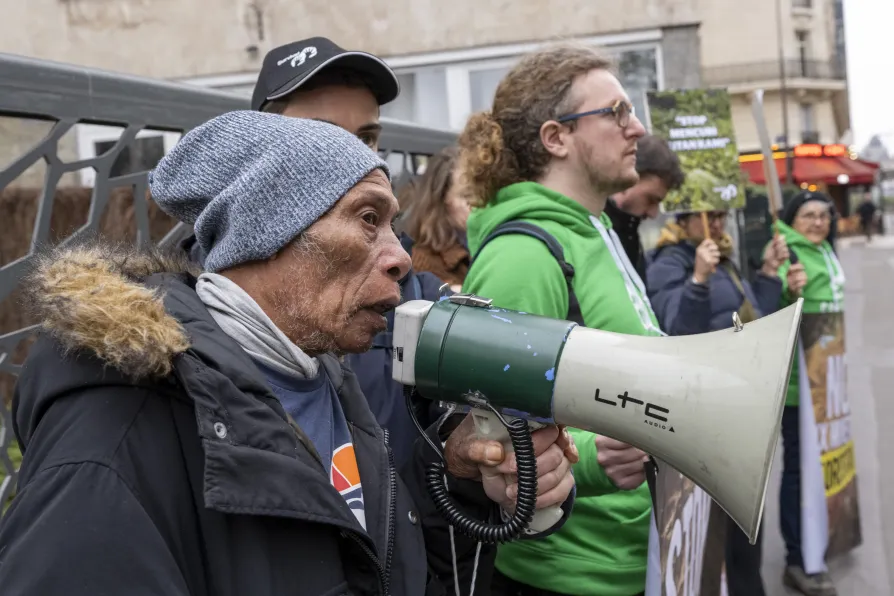
 Ngigoro, a Hongana Manyawa man, speaks out at a protest outside the HQ of Eramet, which operates the world’s biggest nickel mine on his people’s land. Photo: Etienne Begouen / Canopée
Ngigoro, a Hongana Manyawa man, speaks out at a protest outside the HQ of Eramet, which operates the world’s biggest nickel mine on his people’s land. Photo: Etienne Begouen / Canopée
AN INDIGENOUS man, born uncontacted in the Indonesian rainforest, travelled to Europe for the first time today to confront French mining giant Eramet over the destruction of his people’s land.
Ngigoro is a member of the Hongana Manyawa people of the Halmahera island, where extensive nickel mining is rapidly tearing through the rainforest and forcing around 500 uncontacted tribe members to flee deeper into the forest to avoid bulldozers.
He joined protesters from Survival International and Canopee outside Eramet’s headquarters.
The company part-owns Weda Bay Nickel, which operates the world’s biggest nickel mine on Hongana Manyawa land and supplies nickel for electric car batteries under an Indonesian government project.
Weda Bay Nickel also holds the island’s largest mining concession, more than three-quarters of which overlaps with uncontacted Hongana Manyawa territory.
Eramet has repeatedly denied that uncontacted people live within its concession, despite leaked company-commissioned reports showing it has known about their presence since at least 2013.
Ngigoro said: “I have come all the way to France to tell Eramet and the French government that they must stop the mining in the Hongana Manyawa’s forest.
“If they don’t stop the mining, my uncontacted relatives will die.
“The companies are getting rich from our deaths.”
Survival International director Caroline Pearce said the mining project represents “a death sentence” for uncontacted people who depend entirely on the forest.
She said: “Like many Indigenous peoples, the Hongana Manyawa are true environmentalists, stewarding and protecting their forest for thousands of years.
“Like many others, they are now under attack by extractive industries plundering their land.
“The fact that this is being done to advance a supposedly sustainable industry — electric cars — is a bitter irony that does nothing to lessen the appalling danger to the Hongana Manyawa.”
Eramet was approached for comment.










